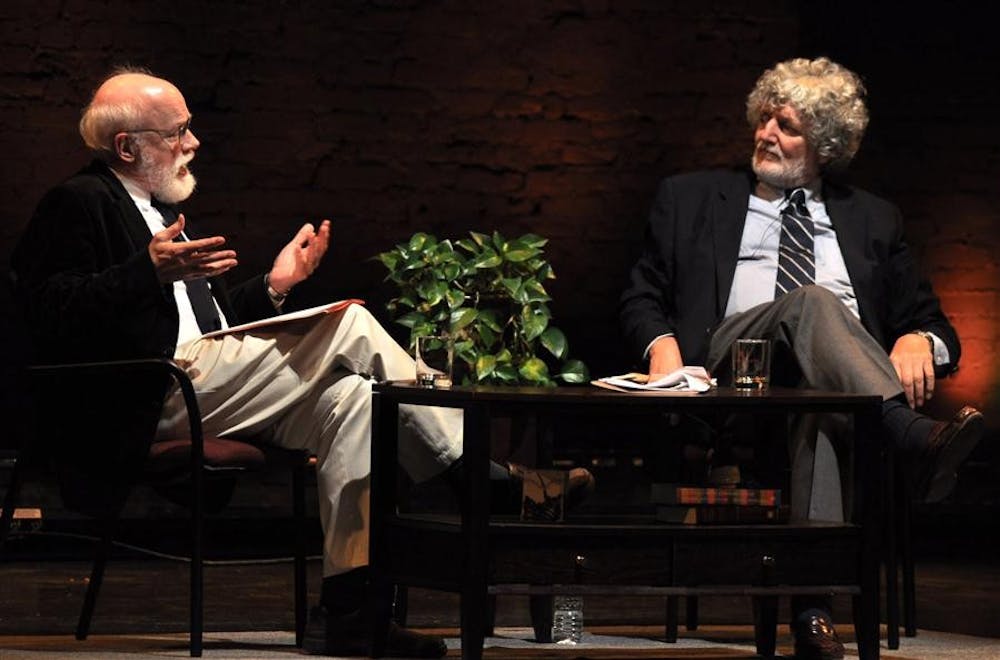Journalist John F. Burns saw his name on a marquee for the first time on Monday.
However, he said journalism shouldn’t be about becoming famous or seeing your name on a marquee. Instead, he said, people going into the profession should stay true themselves and their reasons for going into journalism.
“You aren’t likely to get rich,” Burns said. “Some might.”
Burns gave this year’s Roy W. Howard lecture to a packed room in the Buskirk-Chumley Theater. The lecture was part of the IU School of Journalism speaker series.
Burns is the London Bureau Chief for The New York Times. He has won two Pulitzer Prizes and has been an international correspondent for more than 30 years.
The lecture mentioned journalist Ernie Pyle’s life as a
foreign correspondent and the qualities he had as a journalist. The School of Journalism’s building is named after Pyle, who was from Indiana and attended the school.
Pyle’s modesty was one of the things Burns said is most important to remember considering some of the journalism that goes on today. He said often journalists become too heavily celebrated.
Burns said one of the things he learned early on in his career is to remember that he as a journalist is not part of the story.
“A journalist is an outsider,” he said. “He should be on the outside.”
As an international journalist, Burns said it is also important to consider the risks that are involved in the type of profession.
“Yes, there were risks, but we chose them,” Burns said. “We were rewarded in terms of career advancements.”
During the question-and-answer session that School of Journalism Associate Professor Owen Johnson led, Burns was asked about the thrills associated with international reporting.
Burns said there is a sense of thrill that comes with doing reporting during events such as wars.
Natalie Messer, a graduate student in the School of Public and Environmental Affairs, said she found it interesting how honest Burns was about the thrills and despair that comes with reporting on wars.
“It’s a very interesting life to watch everything happening but not be a participant,” she said.
Johnson also asked Burns if he would change any of his previous international coverage he has done.
Burns said he would change his coverage that he did before the United States went to war in Iraq because some have said the overall news coverage led to the war. If given another chance, he said he would report more on the trauma Americans were dealing with after September 11, 2001.
Burns said it is a risk for reporters who have covered international conflicts to do television appearances these days without crossing the line and inserting their own opinion.
Melissa Orizondo, a sophomore at IU, said she liked how Burns emphasized that people should go into a career such as journalism because they really want to and not to make money.
“I really like his idea of perspective and knowing the context of what you’re doing and why you are doing it,” she said. “His message can be applied to other things.”
Pulitzer winner Burns: Journalism not about fame

Get stories like this in your inbox
Subscribe





